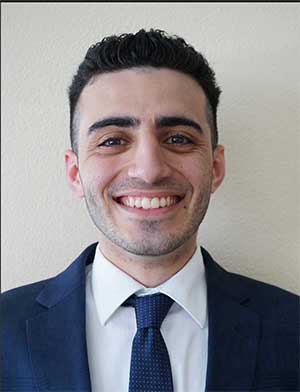Movement Disorder Research
The lab of Sarah Bick, MD, Assistant Professor of Neurological Surgery, uses neurophysiology techniques to study the neural networks underlying movement disorders, with a particular focus on nonmotor symptoms in Parkinson’s Disease. We are using human intracranial neural recordings to better understand how striatal dopamine depletion and decreased dopaminergic input to cortico-basal ganglia networks are associated with common nonmotor symptoms of Parkinson’s disease such as cognitive impairment. We are also interested in studying risk/reward behaviors and biomarkers of altered reward signaling in the corticostriatal network and their association with other nonmotor symptoms of Parkinson’s Disease such as impulsive compulsive behaviors (ICBs) and anhedonia. Another focus of the lab is the use of human intracranial recordings to better understand the neurophysiology of normal emotional and cognitive processes and how these processes malfunction in psychiatric disorders. Improved understanding of the neural signaling underlying cognitive and emotional processes will allow for the development of novel neuromodulation techniques for disorders of these processes in the future.
About Our Research
The Bick neurophysiology lab at Vanderbilt University Medical Center is led by neurosurgeon scientist Sarah Bick, MD. The focus of the lab is using human neurophysiology methods to understand the neural signaling underlying cognitive and psychiatric processes, with the ultimate goal of developing novel neuromodulation techniques.
Projects
Corticostriatal circuitry in Parkinson’s disease nonmotor symptoms
Parkinson’s disease motor symptoms are caused by decreased striatal dopaminergic input leading to abnormal activity in motor corticostriatal circuitry. Our hypothesis is that a similar mechanism in parallel cognitive and affective corticostriatal circuitry contributes to Parkinson’s nonmotor symptoms, such as anhedonia, cognitive impairment, or impulsive compulsive behaviors (ICBs). We use intracranial recordings and behavioral task performance from patients who are undergoing or have previously undergone deep brain stimulation surgery to study the neural activity underlying memory, impulsivity, and emotions, and how these are altered in patients with Parkinson’s Disease.
Neurophysiology biomarkers of cognitive impairment associated with deep brain stimulation
Deep brain stimulation (DBS) is a prominent therapeutic treatment of Parkinson’s disease, correlated with improvement of motor symptoms and overall quality of life of patients. However, DBS may be associated with cognitive impairment following surgery, specifically in certain targets as compared to others. The neurophysiology associated with postoperative cognitive impairment is not well understood. We use intracranial recordings of patients who are undergoing or have previously undergone deep brain stimulation surgery to study potential biomarkers in neural activity of surgery targets and greater corticostriatal circuitry, with the goals of understanding and predicting postoperative cognitive decline and improving DBS postoperative outcomes.
Neural correlates underlying psychiatric disorders
This project seeks to understand brain circuits and biomarkers involved in anxiety, depression, obsessive compulsive disorder, and impulsive behaviors, through use of human intracranial EEG recordings, neural stimulation, and behavioral tasks. Neural recordings of local brain activity and individual neuronal spiking are recorded in inpatient units for further analysis, with the goal of understanding neural signaling of psychiatric dysfunction for the future development of novel treatments.
Clinical outcome studies
The lab is interested in understanding symptomatology of functional neurosurgery patients and how we can improve outcomes in functional neurosurgery procedures. Current projects include understanding factors underlying cognitive and psychiatric symptoms in movement disorders patients and better understanding the relationship between DBS surgery and cognitive and psychiatric symptoms. One current study investigates the comparative clinical, motor, and financial outcomes of bilateral deep brain stimulation surgery between patients who underwent staged (separate surgeries for unilateral placement of DBS electrodes) versus unstaged (simultaneous placement of bilateral DBS electrodes) implantation surgeries.
-

Sarah K. Bick, MD is an Assistant Professor of Neurosurgery at Vanderbilt. She received her BA from Harvard University and her MD from Vanderbilt. She completed residency and functional neurosurgery fellowship training at Massachusetts General Hospital prior to joining the faculty at Vanderbilt.
Helen Qian, BA
Research Analyst
Isabel Long, BS
Research Analyst
-

Leah Mann, PhD
Postdoctoral Research Fellow
-

Natasha Hughes
medical (m4)
Anthony Bishay
medical (m3)
Kindeep Dhatt
doctoral (PhD)Austin Hilvert
medical/MBA (business degree)
Gerald I. Nwosu, PhD
medical (m1)
Astoria Chao
medical (m1)
Emma Ye
medical (m1)Genevieve Hun
medical (m1)
Rachel Chen
medical (m1)Sujanya Narayanan
medical (m1)
-

Vamsi Nandamuri
Pranav Narayanan